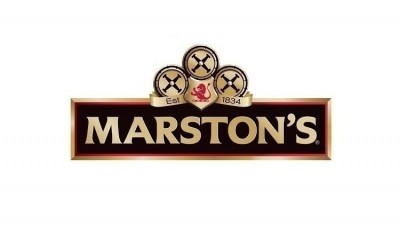Opinion
Post-lockdown pub sector presents ‘once in a decade opportunity’

Customers returning to pubs and restaurants without restrictions cannot come soon enough for the industry.
However, there are pessimistic noises the exact date may be pushed back due to the rising number of Covid cases brought about by the new Delta variant.
The success of the vaccination programme is underpinning the possibility that the UK can stick to the route-map out of lockdown as laid out by Government – which says it is still on track to vaccinate the rest of the adult population by end of July.
Alongside the vaccination programme, the UK Government has dove-tailed economic support to create a ‘stimulus bridge’ to the mass-vaccine, post-Covid world. This support dramatically lowered the cliff-edge that had the industry so worried about during the winter.
Consumer ‘excess savings’ tops £150m
As reopening has commenced, signs of a strong rebound are becoming more apparent. The vaccine roll-out and lockdown three has brought Covid-19 case numbers under control.
Consumers and businesses are seeing more reasons to be optimistic. GfK has flagged a sharp increase in consumer confidence across the board, driven by a ‘well-received’ budget in March and a successful vaccine roll-out.
As the industry opens up again, the future of the UK’s pubs and bars is certainly looking a lot brighter thanks to the combination of a surge in demand, coupled with a reduction of supply of licensed premises.
This bodes well for a period of supra-normal trading that should last 12 to 18 months. Andy Haldane, the Bank of England’s chief economist, has likened the economy to a “coiled spring” that will be released as coronavirus-related restrictions are removed.
The Bank has said that the final amount of excess savings is likely to be more than £150m due to people spending less in the last 15 months.
‘Once in a decade opportunity’
In the short term, the European Football Championships, should draw many people back into the pubs, helped by the involvement of three home teams England, Scotland and Wales, all playing at pub-friendly times.
The ongoing uncertainty about popular holiday summer hotspots may also help with more people choosing to have a staycation and frequent their locals rather than navigating travel and overseas restrictions.
However, though there is likely to be a surge in demand, supply has shrunk.
Pub numbers have declined by around 30% this century. On-trade beer volume has been in decline since the start of the century, driven by several factors including a decline in heavy industry in the UK, the smoking ban, predatory supermarket pricing and promotions, rising home attractions, the beer duty escalator, the rise of the coffee shop, the growth of JD Wetherspoon and the bookies.
But the ready availability of great sites at lower rents with less capex requirements is, perhaps, a once in a decade opportunity to exploit, with lasting benefits for companies with the cash and wherewithal to exploit it.
A very ‘British’ icon
The great British pub remains an enduring, generic and global brand in its own right. There are competing claims as to the oldest pub in Britain but what is fairly certain is that there are dozens of pubs over five hundred years old.
In most places in the world the ‘pub’ is a very ‘British’ icon – although it is the ‘Irish pub’ that has become a feature of many an overseas city promoted by canny Guinness.
The VisitBritain International Passenger Survey (2019) illustrates just how integral a part the pub plays in the experience of very many inbound visits; during 2019, 16.9m visits (c.41%) included at least one visit to the pub and 5.1m visits included at least one visit to a bar or nightclub, spending £12.4bn and £5.1m respectively.
Pubs offer five comparative advantages when compared to restaurants:
- More flexible models
- A growing consumer interest in drinks-led propositions
- Customers can be more loyal to locals than restaurants
- Pubs can exploit more ‘special’ events than restaurants
- A lower and more flexible cost base
As ever, there will be winners and losers in the sector depending on location, demographic, segment, management, ownership amongst other factors.
Nevertheless, as an industry, the hospitality sector can hope and expect better times ahead as pent-up demand is released on ‘Freedom Day’ on 21 June or perhaps a few weeks later.






